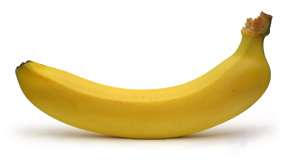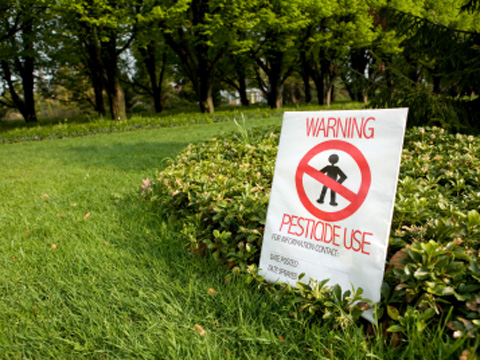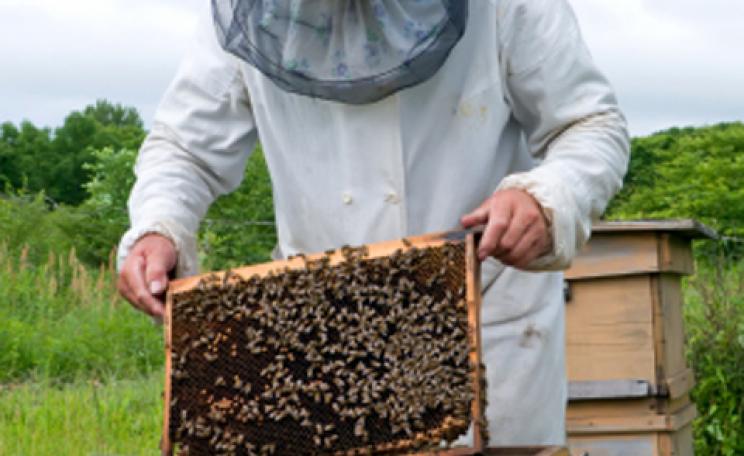Banana giant Dole tried and failed to block the showing of the film in the US
It was a david versus goliath story. The biggest fruit company in the world sued a film-maker for daring to investigate the issue of workers poisoned by pesticides on banana plantations in South America. But it lost.
Film-maker Fredrik Gertten had made a documentary following the story of banana workers in Nicaragua as they brought lawsuits against Dole for the adverse health effects they suffered as a result of the use of the pesticide DBCP.
The pesticide was banned in the USA in 1977 for causing male sterility but Standard Fruit - now Dole - continued to use the pesticide in its plantations outside the USA up until 1982. Workers reported being unable to father any children and women reported losing children. They are now involved in an on-going legal battle in the US to seek compensation.
Dole tries to ban film
Following the release of a trailer for the film in May 2009 Dole attempted to block the full version of the film from being shown at festivals, claiming it 'demonised' them and implied that they had, 'knowingly, recklessly and/or intentionally caused the deaths of countless Nicaraguan citizens.' They were also angry about the use of footage of aeroplanes spraying pesticides.
Even in the US there was surprise and shock at the lawsuit. 'Many critical films come out of film festivals and university screenings and they rarely get attacked in this way,' Gertten told the Ecologist. 'Normally they will attack if they get commercial distribution at a later stage but to get attacked already on the trailer - they also sent the the same cease and desist letter to every sponsor of the LA film festival, including American Airlines and the LA Times - that's really scary in the US where there is hardly any public funding.'
Gertten believes the shock of the lawsuit is normally enough to make other critics of big corporations back down but his lawyers insisted there was nothing in the film to justify a legal challenge.
'Did I expect Dole to attack me? No, because I was quoting public material. The court material was public, LA Times was following it as were CNN, AP. I used the same sources so why should they attack me? There is no commentary voice in the film, I am not giving my voice. I let Dole tell their part of the story too, I was surprised they sued us because there was nothing to sue in this film.'
Dole's embarrassment
For Dole the film makes for uncomfortable viewing. One of the stand-out scences is the company chief executive David Delorenzo's public admission in court that his company continued to use a banned pesticide, ignoring the potential health impact on its workers. Gertten believes Dole was loathe to further publicise this terrifying admission.
'Not only did it get banned but there were reports from Dow Chemicals [the supplier] saying all our workers get sterile will you please send all our product back. They [Dole] refused to do that and actually ordered more pesticide and threatened to sue Dow Chemicals for breach of contract. That scene says a lot. Why don't Dole like the film? If you ask me it is because it shows their own CEO admitting doing something really really bad and immoral. If it's a crime or not someone else will have to judge that but they admit that they kept using this banned pesticide.'
Dole's attempt to gag the film ultimately failed as the court in Los Angeles dismissed its claim saying it had 'no merit' and ordered them to pay the full costs of the case at $200,000. Gertten says the story of Dole in Nicaragua goes beyond corporate power and illustrates the power of the north over the south, industrialised over less industrialised.
'The banana story is a classic documentary story. Going down there and doing the research and finding out this banana growing region in Nicaragua is almost like a disaster zone of ecology. A lot of academics were telling me the ground has been poisoned for 200 years not only because of the pesticide of the bananas. It is also one of the biggest cotton-growing regions and there is also a lot of sugar - so a lot of different crops using pesticides. It's scary. The people in that region every second one dies of kidney failure. It's totally crazy,' he says.
The workers' legal case
In the film the workers win their case against Dole but this victory was later dismissed with claims of fraud. However, the legal battle could continue for many years to come.
'For me the important story is to see the faces of the people who picked our bananas. This court case is a tool to tell a bigger story and understand the power relations and even if the workers didn't win - they did though - I think the story would still have been interesting to tell. I don't believe social justice in Nicaragua will come out of a US court so even if they lost it would be an interesting story - they kept on using a banned pesticide.'
Gertten says he hopes the film will encourage people to question food producers over their use of pesticides and treatment of workers today. 'I use pictures of plantations today because I want the audience to put the question to the producers today and ask them, "ok so what are you using today, what about the workers? Are you 100 per cent certain that what you use today will not provoke the same situation in 20 years and make more people sterile, or women losing their babies or more children with birth defects or water and soil with pollution?"
'I think all of these companies - Chiquita and Dole - would have the same problem in saying we are sure it won't provoke a problem in the future because they can't,' he said.
Useful links
Bananas the Movie
| READ MORE... | |
 |
INVESTIGATION Bananas: from plantation to plate What could be more cheerful than this ubiquitous breakfast fruit? But if you’re not buying them Fairtrade and organic, argues Ed Hamer, then you’re buying into a modern agricultural scandal |
 |
NEWS Pesticide residue exposure linked to ADHD in children Parents urged to wash fruits and vegetables before eating after study finds commonly used pesticides may contribute to ADHD in children |
 |
NEWS The End of the Line: how a film changed the way we eat fish Report highlights the lasting impact of The End of the Line in raising awareness of unsustainable fishing practices - and illustrates how radical new film funding models can work |
 |
GREEN LIVING The banana brief From plantation to consumer: a tale of chemicals, slavery and carbon dioxide... |
 |
NEWS UK says it will ignore medical advice on pesticide-spraying Public will not have to be notified when crops, fields or parks are being sprayed with pesticides potentially harmful to their health, despite warnings from the British Medical Association |








